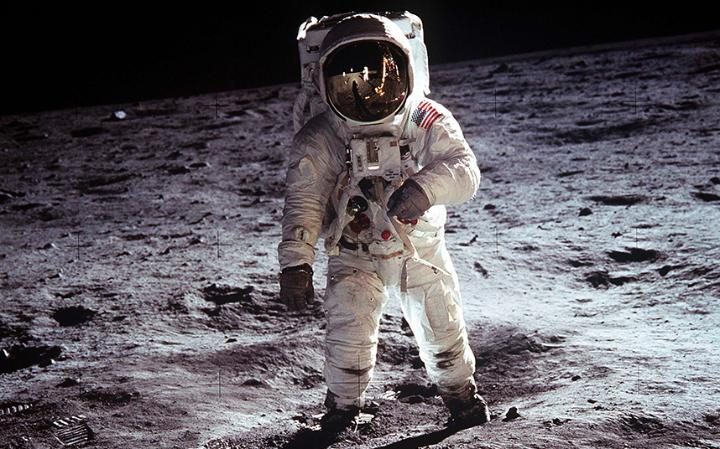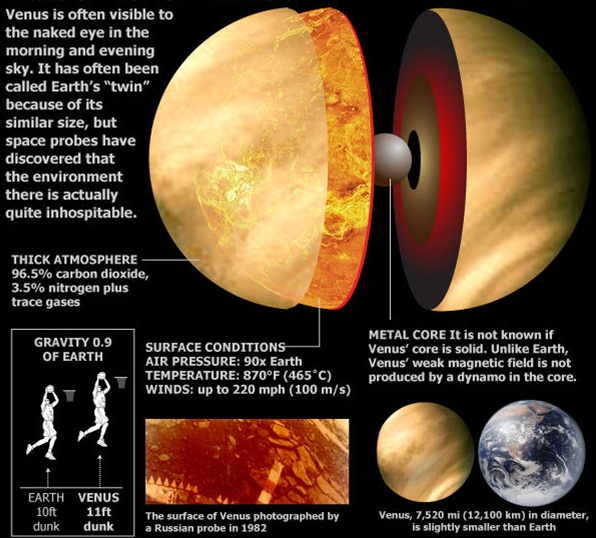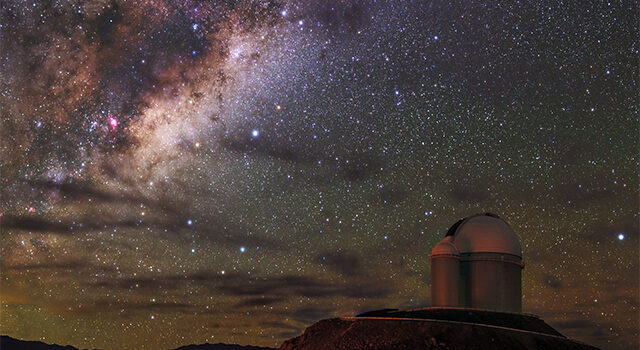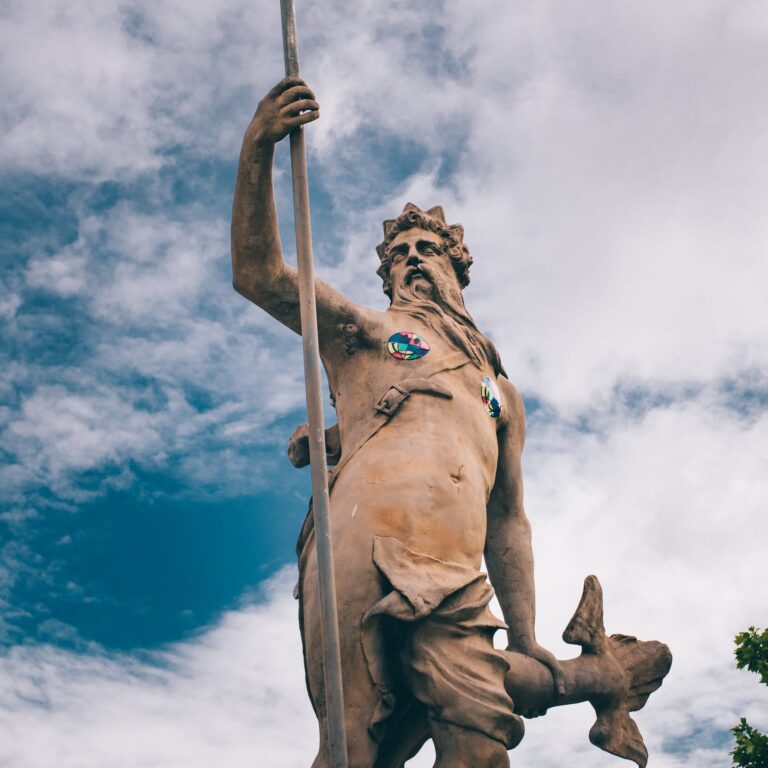What Practical Value Did Astronomy Offer to Ancient Civilizations?
Astronomy played a crucial role in the daily lives of ancient civilizations, offering practical value in areas such as timekeeping, navigation, and religious ceremonies.
Key Takeaways:
- Astronomy helped ancient civilizations keep track of time and seasons, allowing for accurate calendars and agricultural planning.
- Celestial observations aided navigation and exploration, assisting in the creation of maps and facilitating trade and cultural exchange.
- Notable astronomers like Aristotle and Ptolemy made significant contributions to ancient scientific knowledge and understanding of celestial bodies.
- Astronomy influenced agricultural practices by determining planting and harvesting seasons, improving crop yields, and ensuring food security.
- The religious and cultural significance of astronomy manifested in the association of celestial events with rituals, temple construction, and cultural beliefs.
Astronomy had a profound impact on the daily lives of ancient civilizations, providing practical benefits and deepening their understanding of the world around them. The Mayans and Greeks, in particular, incorporated astronomy into their daily lives, using it to develop accurate calendars, align cities and temples, calculate celestial sizes and distances, and explore philosophical concepts about the universe.
Timekeeping and Seasons
Ancient civilizations relied on astronomy to accurately measure time, predict seasons, and plan their agricultural activities. By observing the movements of celestial bodies, ancient astronomers were able to develop precise calendars that helped in tracking the passage of time. These calendars, based on astronomical events such as solstices and equinoxes, provided a framework for organizing religious, cultural, and societal events.
The alignment of celestial bodies also allowed ancient civilizations to determine the changing of seasons. This played a crucial role in agricultural planning, as farmers used this information to decide the optimal timing for planting and harvesting crops. The ability to predict seasonal changes based on astronomical observations contributed to improved crop yields and food security.
Furthermore, astronomy aided in the development of navigation systems for ancient civilizations. By studying the positions of stars and other celestial bodies, mariners and explorers were able to determine their location and navigate across vast oceans and landscapes. Astronomy also aided in mapping and creating accurate charts, which facilitated long-distance trade and cultural exchange between civilizations.
The Ancient Egyptians: A Stellar Timekeeping System
The ancient Egyptians were renowned for their sophisticated timekeeping system based on astronomical observations. They closely monitored the rising of the star Sirius, known as the “Dog Star,” which coincided with the annual flooding of the Nile River. This celestial event marked the beginning of their new year and played a crucial role in their agricultural practices. The annual flooding of the Nile provided fertile soil, ensuring a successful harvest and the sustenance of their civilization.
| Month | Ancient Egyptian Name | Astronomical Event |
|---|---|---|
| Thoth | First Cattle | Rising of Sirius |
| Phaophi | Cattle of Ra | Alignment of Sirius and the Sun |
| Hathor | Bringing in the Offering | Alignment of Sirius and the Sun |
The ancient Egyptians’ reliance on astronomy for timekeeping and agricultural planning highlights the practical value that astronomy held in ancient civilizations. It served not only as a scientific discipline but also as a vital tool for societal organization, ensuring the prosperity and survival of these ancient cultures.
Navigation and Exploration
Astronomy provided ancient civilizations with crucial navigational tools, enabling them to explore new territories and establish trade routes. By observing the movements of celestial bodies, ancient navigators could determine their position and direction, allowing them to navigate vast oceans and unknown lands with relative accuracy.
The ancient Greeks and Phoenicians were among the first to use astronomy for navigation. They developed celestial maps and charts, identifying key stars and constellations that served as reference points during their voyages. These early astronomers also used celestial bodies, such as the sun and stars, to determine their latitude and longitude, providing them with valuable information about their location on the Earth.
Astronomy played a crucial role in the exploration and colonization efforts of ancient civilizations. The Egyptians, for example, relied on astronomical observations to guide their expeditions along the Nile River, allowing them to make precise calculations for travel distances and time. The Polynesians, using their knowledge of celestial navigation, ventured across vast stretches of the Pacific Ocean, discovering new islands and establishing trade networks.
Astronomy and Trade
The practical value of astronomy extended beyond navigation. Ancient civilizations utilized celestial observations to facilitate long-distance trade and cultural exchange. By understanding the patterns of celestial bodies, traders could determine the optimal times for voyages, avoiding treacherous weather conditions and maximizing efficiency.
Astronomy also played a crucial role in determining trade routes. For instance, the ancient Silk Road, connecting the East and West, relied on celestial observations to guide merchants across vast deserts and treacherous terrains. By relying on the positions of stars and constellations, traders could follow established routes with greater confidence, ensuring safe passage and successful trade.
Overall, astronomy served as a vital tool for ancient civilizations, enabling them to navigate the unknown and expand their horizons. By harnessing the power of the celestial realm, ancient explorers could venture into uncharted territories, establish trade routes, and foster cultural exchange, ultimately shaping the course of human history.
| Civilization | Navigational Techniques | Notable Contributions |
|---|---|---|
| Ancient Greeks | Celestial maps, latitude and longitude calculations | Developed theories and models of the universe |
| Phoenicians | Celestial navigation, star charts | Established extensive trade networks |
| Egyptians | Astronomical observations along the Nile River | Advanced knowledge of celestial cycles |
| Polynesians | Stellar navigation, island discovery | Pioneers of long-distance oceanic voyages |
Notable Astronomers and Their Contributions
Aristotle and Ptolemy were renowned astronomers in ancient civilizations, whose contributions revolutionized the understanding of celestial bodies and influenced scientific progress. Aristotle, a Greek philosopher and scientist, made significant advancements in astronomy by proposing a geocentric model of the universe. He believed that the Earth was at the center, with celestial bodies, including the Sun, Moon, planets, and stars, revolving around it in perfectly circular orbits.
Ptolemy, an Egyptian astronomer and mathematician, built upon Aristotle’s work and developed a comprehensive geocentric model known as the Ptolemaic system. His influential book, the “Almagest,” synthesized the knowledge of ancient astronomy and provided detailed observations and calculations of planetary motions. Ptolemy also introduced the concept of epicycles, which explained the irregularities observed in the celestial movements within the geocentric model.
“Astronomy has always been a journey of discovery, expanding our understanding of the cosmos and our place within it.” – Aristotle
These astronomers’ theories and calculations formed the foundation of astronomy in ancient civilizations. While their geocentric models were eventually replaced by the heliocentric model proposed by Nicolaus Copernicus, Aristotle and Ptolemy’s contributions paved the way for future scientific progress and influenced the development of observational methods and mathematical techniques in astronomy.
| Astronomer | Contribution |
|---|---|
| Aristotle | Developed a geocentric model of the universe |
| Ptolemy | Created the comprehensive Ptolemaic system and introduced the concept of epicycles |
Impact on Agricultural Practices
Astronomy played a vital role in ancient agricultural practices, helping civilizations optimize their farming methods and ensure bountiful harvests. By observing celestial bodies and tracking their movements, ancient civilizations were able to develop accurate calendars that guided their planting and harvesting seasons. This knowledge allowed farmers to plan their agricultural activities with precision, maximizing their crop yields and ensuring food security for their communities.
One of the most significant contributions of astronomy to ancient agricultural practices was the understanding of the changing seasons. By studying the movement of the sun, moon, and stars, civilizations could predict when the rainy season would begin, marking the ideal time for planting. They could also determine when the dry season would arrive, indicating the need for irrigation techniques or the cultivation of drought-resistant crops.
Ancient civilizations also used astronomy to determine the optimal time for harvesting crops. By observing celestial events such as the alignment of specific stars or constellations, farmers could identify the precise moment when their crops were ripe and ready for harvest. This knowledge prevented premature harvesting or delays that could result in crop spoilage and loss.
In addition to timekeeping, astronomy influenced other aspects of ancient agricultural practices. For instance, some civilizations believed that certain celestial events, such as meteor showers or planetary alignments, held spiritual or supernatural significance. Farmers would perform rituals or ceremonies during these events, believing that they would bring blessings and ensure the success of their crops.
| Astronomy in Ancient Agricultural Practices |
|---|
| Optimization of farming methods |
| Prediction of planting and harvesting seasons |
| Maximization of crop yields |
| Prevention of crop spoilage and loss |
| Spiritual and supernatural significance |
In summary, astronomy provided ancient civilizations with practical knowledge that significantly impacted their agricultural practices. By understanding the movements of celestial bodies, civilizations optimized their farming methods, determined the best times for planting and harvesting, and maximized their crop yields. The influence of astronomy extended beyond mere timekeeping, as it also played a role in cultural and spiritual beliefs. Ancient civilizations recognized the importance of the stars and planets in their everyday lives, using this knowledge to ensure the prosperity and sustenance of their communities. The study of astronomy in ancient civilizations continues to fascinate and inspire us today, reminding us of the profound connection between the cosmos and our earthly existence.
Religious and Cultural Significance
Astronomy held immense religious and cultural importance in ancient civilizations, influencing the construction of temples, religious ceremonies, and cultural beliefs. The celestial bodies, their movements, and the alignments of stars and planets were believed to be messages from the gods, guiding the ancient civilizations in their spiritual practices and shaping their understanding of the universe.
Religious rituals and ceremonies were intricately connected to astronomical events. Ancient cultures, such as the Egyptians and the Mayans, constructed elaborate temples and monuments with precise alignments to celestial bodies. These alignments were believed to facilitate communication with the gods and ensure divine favor and protection. The Mayans, for example, built their pyramids in such a way that they aligned with the rising or setting sun during significant solstices or equinoxes, symbolizing the renewal of life and the cycle of nature.
Cultural beliefs were deeply intertwined with celestial observations in ancient societies. The movements of the sun, moon, and stars were associated with myths, legends, and creation stories. Ancient civilizations developed complex cosmologies based on their observations of the night sky, attributing divine qualities to celestial bodies and constellations. These beliefs contributed to their cultural identity and worldview, shaping art, literature, and architecture.
| Ancient Civilization | Religious Significance | Cultural Significance |
|---|---|---|
| Egyptians | The alignment of temples with celestial bodies reflected the belief that the pharaohs were divine and connected with the gods. | Artworks and hieroglyphs incorporated celestial symbols, depicting the sun god Ra and the night sky. |
| Greeks | The movements of celestial bodies influenced the worship of gods and goddesses, with each deity associated with a specific planet or star. | The constellations were named after mythical figures, preserving Greek folklore and legends. |
| Mayans | Mayan priests used celestial observations to determine auspicious dates for religious ceremonies and agricultural activities. | Mayan hieroglyphs and codices depicted celestial events and the gods associated with them. |
In conclusion, astronomy played a crucial role in the religious and cultural practices of ancient civilizations. It shaped their beliefs, influenced the construction of sacred sites, and served as a means of communication with the divine. The study of celestial bodies deepened their understanding of the cosmos and fostered cultural exchange among different civilizations. The legacy of astronomy in ancient times still resonates today, reminding us of the enduring human fascination with the vastness of the universe and our place within it.
Mayans and Greeks: Astronomy in Daily Life
The Mayans and Greeks integrated astronomy seamlessly into their daily lives, using it to shape their calendars, architecture, and philosophical understanding of the cosmos. These ancient civilizations recognized the practical value of astronomy and its significance in various aspects of their society.
The Mayans, known for their advanced understanding of astronomy, used celestial observations to develop a highly precise calendar system. Their calendar was based on the movements of celestial bodies, including the Sun, Moon, and planets. By tracking these celestial events, the Mayans were able to determine the most auspicious times for religious ceremonies, agricultural activities, and societal events. Their intricate calendar system allowed them to plan and organize their lives in harmony with the celestial rhythms.
The Greeks, too, revered astronomy and its connection to their daily lives. Greek philosophers such as Plato and Aristotle sought to understand the nature of the universe and its celestial bodies. They believed that the study of astronomy was essential for comprehending the order and harmony of the cosmos. The Greeks also used astronomy to calculate celestial sizes and distances, laying the foundation for modern scientific knowledge. The integration of astronomy into Greek culture extended to their architecture as well, with temples and cities being aligned with celestial phenomena.
| Ancient Civilization | Astronomical Contributions |
|---|---|
| Mayans | Developed advanced calendar system based on celestial observations |
| Greeks | Explored the nature of the universe and its celestial bodies, aligned architecture with celestial phenomena |
Both the Mayans and Greeks recognized that astronomy not only provided practical benefits but also deepened their knowledge of the world around them. By studying the stars, planets, and other celestial objects, they gained a greater understanding of the cosmos and their place within it. Astronomy was not just a scientific pursuit for these ancient civilizations; it was an integral part of their daily lives and helped shape their cultural, religious, and philosophical beliefs.
Conclusion
Astronomy provided ancient civilizations with practical benefits and a deeper understanding of the world around them, leaving a lasting legacy on scientific advancements and cultural practices.
Throughout history, astronomy played a crucial role in various aspects of ancient societies. By observing the celestial bodies, ancient civilizations were able to develop accurate calendars, crucial for timekeeping, tracking seasons, and planning agricultural activities. This enabled them to optimize crop yields and ensure food security.
In addition to timekeeping and agricultural planning, astronomy also greatly influenced navigation and exploration. By studying the stars and other celestial bodies, ancient sailors were able to navigate their way across vast oceans, determine direction, and create detailed maps. This facilitated long-distance trade and cultural exchange, leading to the growth and development of ancient civilizations.
Notable astronomers such as Aristotle and Ptolemy made significant contributions to ancient civilizations’ understanding of celestial bodies. Their theories and observations shaped the scientific knowledge of the time and paved the way for future advancements in astronomy.
Astronomy held great religious and cultural significance for ancient civilizations. Celestial events and alignments were closely associated with religious rituals, temple construction, and cultural beliefs. The alignment of cities and temples with the stars was seen as a way to connect the earthly and celestial realms, reinforcing the cosmic order and divine connection.
The Mayans and Greeks, in particular, incorporated astronomy into their daily lives. They developed complex calendars that accurately predicted celestial events and guided their religious and societal activities. They also explored philosophical concepts about the universe, calculating celestial sizes and distances, and pondering the nature of existence.
In conclusion, astronomy’s practical value to ancient civilizations cannot be overstated. It provided them with essential tools for timekeeping, navigation, agricultural planning, and religious and cultural practices. Moreover, it deepened their understanding of the cosmos and their place within it. The legacy of ancient civilizations’ astronomical pursuits can still be seen in modern scientific advancements and cultural practices.
FAQ
What practical value did astronomy offer to ancient civilizations?
Astronomy offered practical value to ancient civilizations by helping them keep track of time, seasons, and navigation. It was used for agricultural planning, navigation, and creating accurate calendars for religious and societal events.
How did astronomy help ancient civilizations keep track of time and seasons?
Ancient civilizations used astronomical observations to develop accurate calendars, predict seasonal changes, and assist in agricultural planning.
In what ways did astronomy aid ancient civilizations in navigation and exploration?
Astronomy helped ancient civilizations navigate and explore by using celestial bodies to determine direction, create maps, and facilitate long-distance trade and cultural exchange.
Who were some notable astronomers in ancient civilizations and what were their contributions?
Notable astronomers such as Aristotle and Ptolemy made significant contributions to the field, shaping scientific advancements and understanding of celestial bodies.
How did astronomy influence agricultural practices in ancient civilizations?
Astronomy influenced agricultural practices in ancient civilizations by using celestial observations to determine planting and harvesting seasons, improving crop yields and food security.
What was the religious and cultural significance of astronomy in ancient civilizations?
Astronomy had a profound impact on the religious and cultural beliefs of ancient civilizations. Celestial events and alignments were associated with religious rituals, temple construction, and cultural beliefs.
How did the Mayans and Greeks incorporate astronomy into their daily lives?
The Mayans and Greeks incorporated astronomy into their daily lives by using it to develop accurate calendars, align cities and temples, calculate celestial sizes and distances, and explore philosophical concepts about the universe.
What is the practical value that astronomy offered to ancient civilizations overall?
Astronomy provided practical benefits to ancient civilizations by helping them keep track of time, navigate, improve agricultural practices, and deepen their understanding of the world around them.






